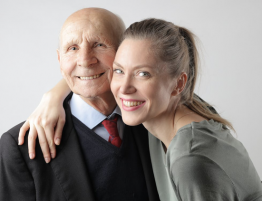
Adopting a child is certainly a life-changing and fulfilling experience, both for you and the new member of your family. While growing your family through adoption is exciting, it also involves a complex legal process with numerous factors that you need to consider. It is important for you and your family to understand the adoption process before setting the process in motion. Reviewing the process and everything adoption entails will help you determine if you are ready to take the necessary steps to adopt a child into your family.
In this guide, we highlight the different phases of the adoption process as well as the most common questions concerning adoption to help you as the parent make an informed decision when bringing a new member to your household.
Who is eligible to adopt a child in Illinois?
Before deciding to adopt a child, you must consider your eligibility. According to Illinois law, those who meet the following criteria can legally adopt in Illinois:
- Must have no legal disability
- Must have lived in Illinois for 6 months or longer
- Must have a positive reputation in their community
- Must be at least 18 years old unless there is an exception from the court
Single and married parents can adopt a child in Illinois. For married couples, both spouses must meet the adoption requirements and be part of the adoption process unless the couple has been separated or living apart for more than one year. For unrelated adoptions, adopting parents must submit to fingerprinting and a criminal background check. Having a criminal record does not automatically disqualify parents from being able to adopt.
Types of Adoption in Illinois

There are several types of legal adoption recognized in Illinois. Understanding the types of adoption will make you aware of your options and help put you on the right path.
The following are the types of adoption in Illinois:
- Related adoption: This is when the child or person being adopted is related to one or both adopting parents. This is the easiest type of adoption to complete. It is also considered related adoption if a step-parent wants to adopt the biological child of their spouse because the biological parent is also listed on the adoption petition.
- Public agency adoption: Public adoption agencies are licensed agencies that have legal custody of the child as well as the authority to place a child with an adopting family. Children end up in the custody of a public agency if the biological parents give up their child voluntarily or have their parental rights terminated by a court. Many children in public agencies came from a traumatic situation.
- Private adoption: Private adoptions cover the adoption of newborns as the biological parents have chosen to give up their child for adoption upon birth. The newborn in these cases is not related to the adopting parents and there is no adoption agency involved. The child is given to the adopting parents once the child is born, and the biological parents have 72 hours after the child is born to change their minds. With private adoption, the identities of all parties involved are kept confidential.
- Adult adoption: This involves the adoption of individuals over the age of 18. The adult being adopted must be related to the adopting parents or has lived with at least one of the adopting parents for over two years.
- Interstate/ intercountry adoption: This is when parents adopt a child from another state or country. The adopting parents must receive approval from the agencies in the state or country where the individual is being adopted from, and they typically must complete a home study.
- Standby adoption: This is when a terminally ill legal parent arranges for their child to be adopted by a specific person when they become too ill to care for their child or when they pass away.
No matter what type of adoption you pursue in Illinois, it is beneficial to work with an experienced adoption attorney to make you aware of your options and rights and ensure that the process is done in accordance with state and federal laws.
Once a child is adopted, the parties involved can choose to have an open or closed adoption:
- Open adoption: An open adoption is when the parties involved, including the adoptive parents, birth parents, and child maintain an open relationship. This can involve in-person meetings and phone calls between the child and their birth parents as well as updates for the birth parents that may include sending pictures. Open adoptions may look a little different for each family.
- Closed adoption: With closed adoptions, there is no communication between the birth parents and the adoptive parents or child once the adoption is finalized.
What is the cost of adoption in Illinois?
Finances are a large and important part of every adoption process. The cost of the adoption process varies depending on the type of adoption you pursue. In addition to paying adoption fees, you may also have to pay court fees, a fee for an adoption attorney, medical expenses, and living expenses for the child’s birth mother.
If you are working with an adoption attorney, they can provide you with an idea of what to expect in terms of costs. The following are the costs you can expect from the different types of adoption programs:
- Home Study Only (HSO) Program: The Home Study Only program is for Illinois adoptive parents that are working with placing resources outside of Illinois. Under this program, a fee of $4700 is due with the application for first time applicants and $4100 for returning applicants.
- Traditional Adoption Placement (TAP) Program: Traditional Adoption Placement is done through a public adoption agency and has a total fee of $38,700 for new applicants and $38,100 for returning applicants. This total cost includes fees for home study, acceptance into the TAP program, and a fee due at the time of placement. Under the TAP program, adoptive parents can apply for Family Based Financial Aid (FBFA) to receive financial aid to help pay for the adoption. Awards under this program generally range from $1000 to $13,000 depending on the unique circumstances of the adoptive parents.
- Agency-Assisted Placement (AAP) Program: The total fees for the Agency-Assisted Placement program are $10,700 for new applicants and $10,100 for returning applicants. Applicants with current Home Study pay a fee of $8600.
- Waiting Child Services (WCS) Program: The fees for the Waiting Child Services program are $7700 for new applicants and $7100 for returning applicants. Travel expenses are not included in these fees.
Steps of the Adoption Process
The adoption process is a multi-step process that can take months to complete. It is important to understand the steps of the process before pursuing an adoption so that you know what to expect. An experienced adoption attorney can also help explain the steps of the process for you.
The following are the main steps of the adoption process in Illinois:
File Adoption Petition
Adopting parents initiate the adoption process by filing a petition for adoption. The petition must be filed along with a consent to adoption to the circuit court where the adopting parents, child, or biological parents of the child reside. The petition must be filed within 30 days after the child is up for adoption and the petition must include a summons of required parties including biological parents and the child.
Adoption Home Study
An adoption home study is a vital part of the adoption process and is required for agency adoptions in order to be approved. This is done to ensure that the child is going to a safe and well-maintained home.
The adoption home study is included within the paperwork, or dossier, and is conducted by a social worker who will interview the adoptive parents. The social worker will ask a set of predetermined questions and inspect the condition of the home and either approve or disapprove the prospective adopting parents depending on their assessment. They will then file the necessary paperwork.
Adoption Child Referral
Adoption child referral involves a call from an agency to the potential adoptive parents regarding a child that the agency has chosen for them. Depending on the family’s criteria, these agencies will usually select a child that they believe to be the best fit for them. If for any reason the situation does not work out, the family will have the right to decline the referral.
Consent to Adoption
The consent to adoption filed with the adoption petition is a request for consent to adopt a child. Whether it’s a parent, relative, or state agency that is in charge of granting approval, they will have the authority of deciding if the child’s adoption is granted to the adoptive family. Adopting a child without consent puts you at risk of legal trouble.
Interim Order Hearing
An interim order hearing is held involving all served parties, including the adopting parents, the biological parents, the child, and other parties such as adoption agencies. During this hearing, the judge will determine if the parental responsibilities of the biologic
al parents must be terminated, who will be granted temporary parental responsibilities for the child, and whether a guardian ad litem will be assigned to represent the child during the process. The judge will also appoint an investigator to carry out a home study and perform a criminal background check on the adoptive parents. When adopting from an agency, the agency itself will handle the investigation.
Final Hearing
The final hearing is done around six months after the interim order hearing. In the final hearing, the court will review the reports from the investigator and guardian ad litem as well as any affidavits submitted by the parties involved. The judge will then issue an order to finalize the adoption.
Get New Birth Certificate
Once the final adoption order is given, the adoptive parents can then obtain a revised birth certificate by submitting a completed certificate of adoption form to the Illinois Department of Public Health (IDPH). The new birth certificate will show the child’s new name and the adopting parents listed as the child’s parents. Illinois is a closed state which means that the original birth certificate will be sealed with the IDPH.
It is important to keep in mind that not all adoptions will follow the same process. The type of adoption you choose to pursue and the unique situations of all the parties involved will affect how the process plays out. An experienced adoption attorney can help you better understand the adoption process you can expect based on your specific situation.
FAQ
How long does it take to adopt in Illinois?
In general, the adoption process in Illinois takes about six months as the final hearing is held six months from the date of the initial order hearing. However, the process may take longer when working with an agency or if there are any complications along the way.
How can adoptive parents obtain information about the child?
Adopting parents working with an agency are entitled to information about the mental, medical, and social history of the child. For private adoptions, the biological parent must provide written consent for adopting parents to receive this information.
Is training required in Illinois for adoptive parents?
All parents petitioning for adoption must complete a 27-hour training course to receive the license to be a foster family. After being matched with a child, they must complete an additional 9 hours of training that focuses on adoption and the process for adoption. Adoptive parents will always have access to resources and services that can help them after the adoption is finalized.
Can adoptive parents be disqualified from adopting a child?
The following are the grounds for disqualification for adoption in Illinois:
- Spousal abuse
- Felony child abuse or neglect
- Crimes against children including child endangerment, child abandonment, or child pornography
- Violent crime including murder or manslaughter, battery with or without a weapon, sexual assault/ abuse, and kidnapping
Do the biological parents of the adopted child still have legal rights?
In Illinois, the biological parents will no longer have legal rights to the child once the adoption is finalized in most cases. Many types of adoption require the termination of the parental rights of the biological parents. The adoptive parents have total control over potential contact between the adopted child and the biological parents.
Call the Adoption Attorneys of Allen Gabe Law, P.C.
Adopting a child is a legal process that must be done according to applicable state and federal laws and the requirements of the state of Illinois. If you are ready to adopt a child, make sure you call our experienced adoption attorneys at Allen Gabe Law, P.C. Our attorneys will help ensure that you are aware of your options when it comes to adoption and help you through every step of the adoption process.
Call Allen Gabe Law, P.C. at (847) 241-5000 for more about how our attorneys can help you adopt in Illinois.
Attorney advertising. The information is not provided to serve as unsolicited legal advice, nor as a suggestion of a need for legal services. The opinions, beliefs and viewpoints expressed by the author do not necessarily reflect the opinions, beliefs and viewpoints of Allen Gabe Law, P.C.








